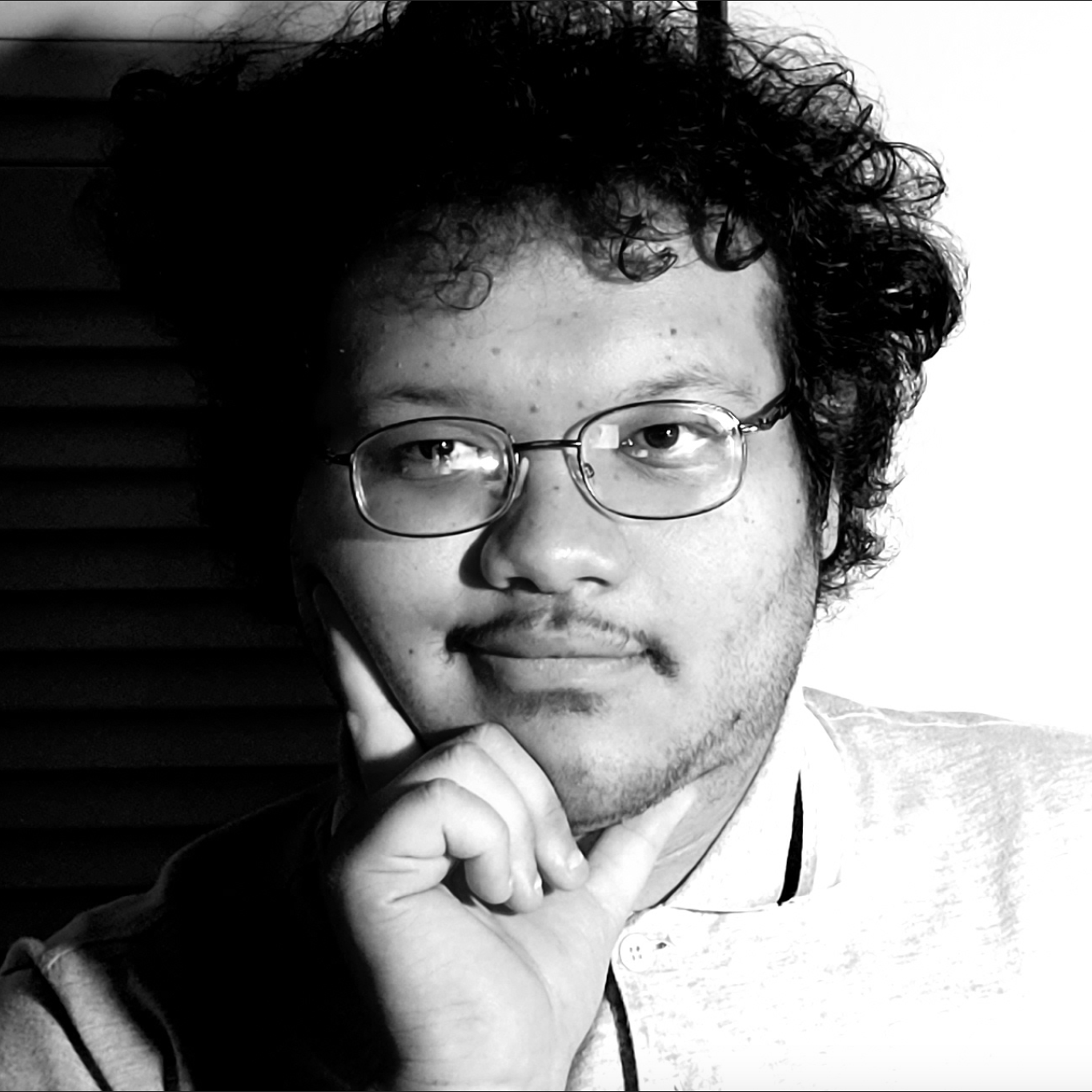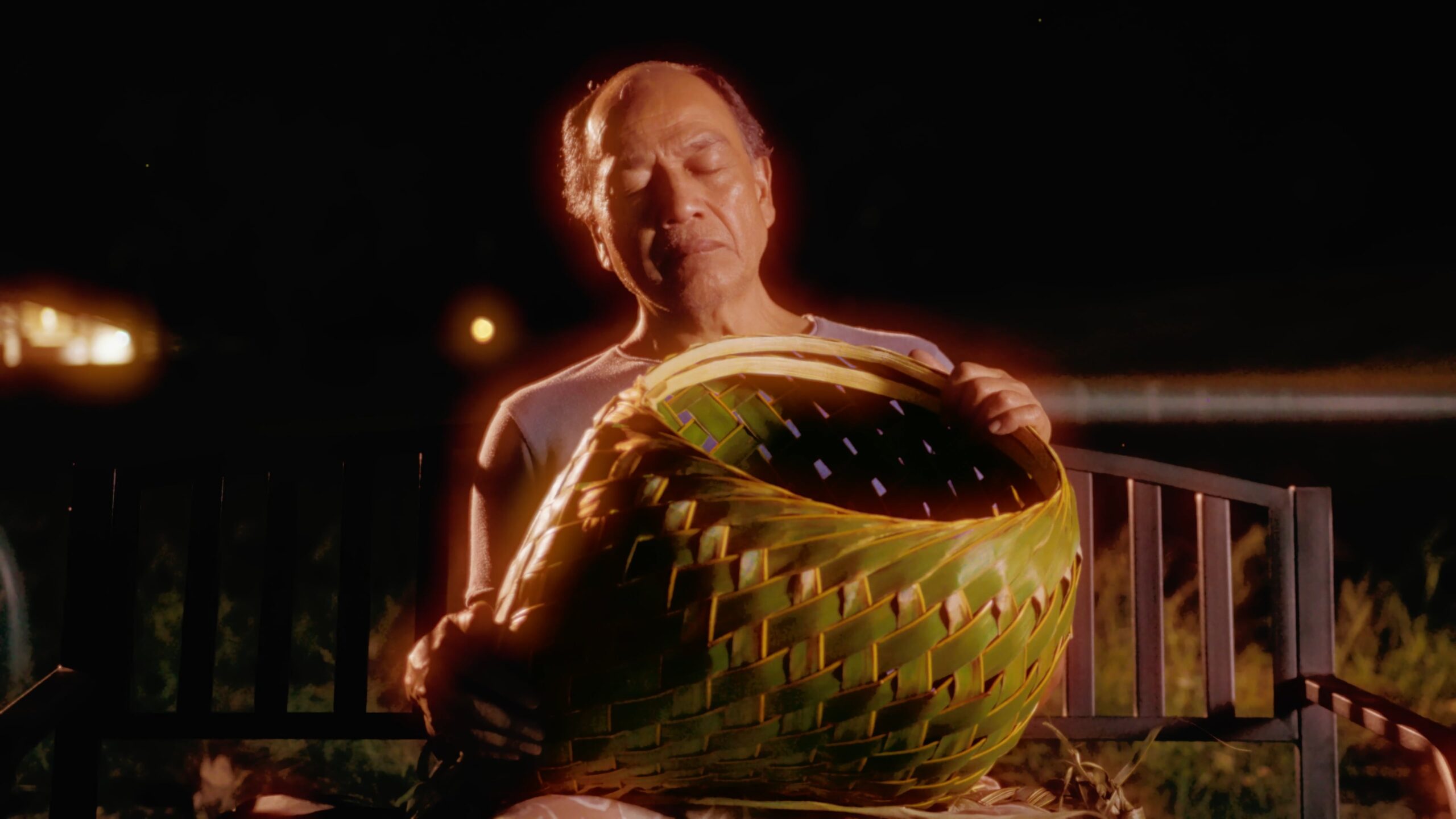WOVEN is an indigenous short film directed by Vilsoni Hereniko and Alex Cantatore. It tells the story of an incident involving an indigenous basket weaver (played by Vilsoni Hereniko) trying to complete the traditional art of basket weaving but struggling to do so in a world where that custom is being forgotten. This film explores indigenous aesthetics through cinematography, editing, sound, and writing. With this, I decided to review this film through the Makawalu process and the eight eyes. These eight eyes highlight the use of indigenous tropes, not through the literal, but rather the deeper meaning and context of an indigenous film.
This film expresses many of these indigenous tropes by presenting the environment and nature as elements to be respected and revered. The basket weaver is creating a basket made of coconut leaves woven together, but he is also utilizing the ocean to clean off the dirt. However, the shots of the leaves interacting with the water are expressed through experimental editing; the frame rates are slowed down as they move, whilst the basket weaver chants in an indigenous language. It almost becomes like watching the scene through his point of view. This gives it a spiritual vibe and having both the chant and the visual creates this space between the natural environment and the spiritual world. The spiritual element is important because it immerses the audience in the basket weaverʻs view of the city and the land through his eyes.
As the world modernizes from nature to a metropolis, it can be difficult to preserve cultural practices that involve people and nature. The basket weaver is in a world where the city is all around him and nature is being taken over. This film is also based on an actual incident that happened to Hereniko, where the basket weaver sought shelter from the rain and ended up at a condo. The security guard and resident, seeing someone of his looks, thought he was trespassing. But he was just seeking shelter and wanting to continue to weave the basket. Despite his pleading, he was told to leave. Though he returned to the park, he came across a homeless couple and they threw something in the basket and acknowledged his efforts in keeping this tradition alive. This also highlights the community or collective aspect of the film. An indigenous film is not just about the one main character, but rather the community around them. The couple showed appreciation for his care of the culture and conveyed to the audience that even in the world of the city, there is still a community that will continue to support and keep the culture alive.
The film is set in Honolulu, a bustling city, which was once wetland and farmlands used by native people pre-European contact. It was a place where the island could sustain itself, utilize the natural resources, and distribute them evenly to the community. Unfortunately, colonialism and tourism built over these lands with hotels and concrete, and reshaped the landscape until it was no longer like what it once was. I felt that the basket weaver is in a world where these cultural practices are out of place in modern times, and this highlights the difficult balance between having both culture and the modern cityscape.
Seeing this film makes me wonder how our world could adapt to accommodate the modern metropolis with nature and cultural practices. In recent years, there have been situations where cultural and sacred sites were planned to be developed over or built upon. WOVEN is an example of when cultural traditions meet the modern world of the big city. I hope to see the culture thriving and still remaining important to the community to preserve.

Richard Aiwohi-Kim born and raised here in Honolulu. He earned a Bachelors of Arts in the Art Studio and Digital Cinema at the University of Hawaiʻi at Mānoa. He is an aspiring filmmaker and artist and studies cinema history, media culture, ethics, and visual culture. Through UH, he has worked on almost a dozen student productions as an editor, production assistant, sound recordist, and DP.
The HIFF ONLINE CREATIVES & CRITICS IMMERSIVE (HOCCI) program supports sustainable film criticism in Hawai’i through mentorship and paid career opportunities for Hawai’i-based AANHPI critics. The mission of HOCCI is to broaden diversity in film criticism across the Pacific and use influencer branding strategies to spark career opportunities. The 2024 HOCCI is supported by Critical Minded, a grant-making and learning initiative that supports cultural critics of color in the United States.



